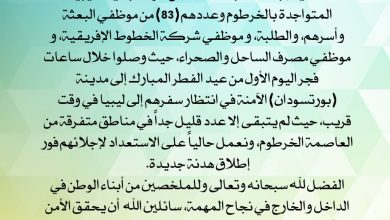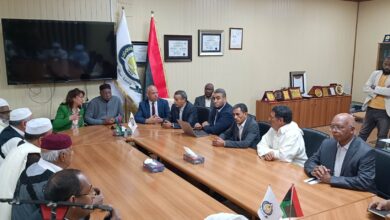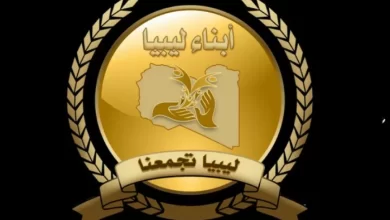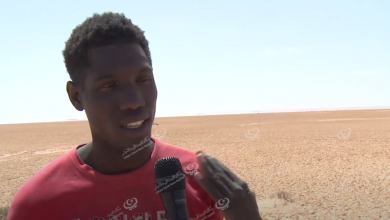A message to the Libyan Political Dialogue Forum regarding freedom of speech and peaceful protests
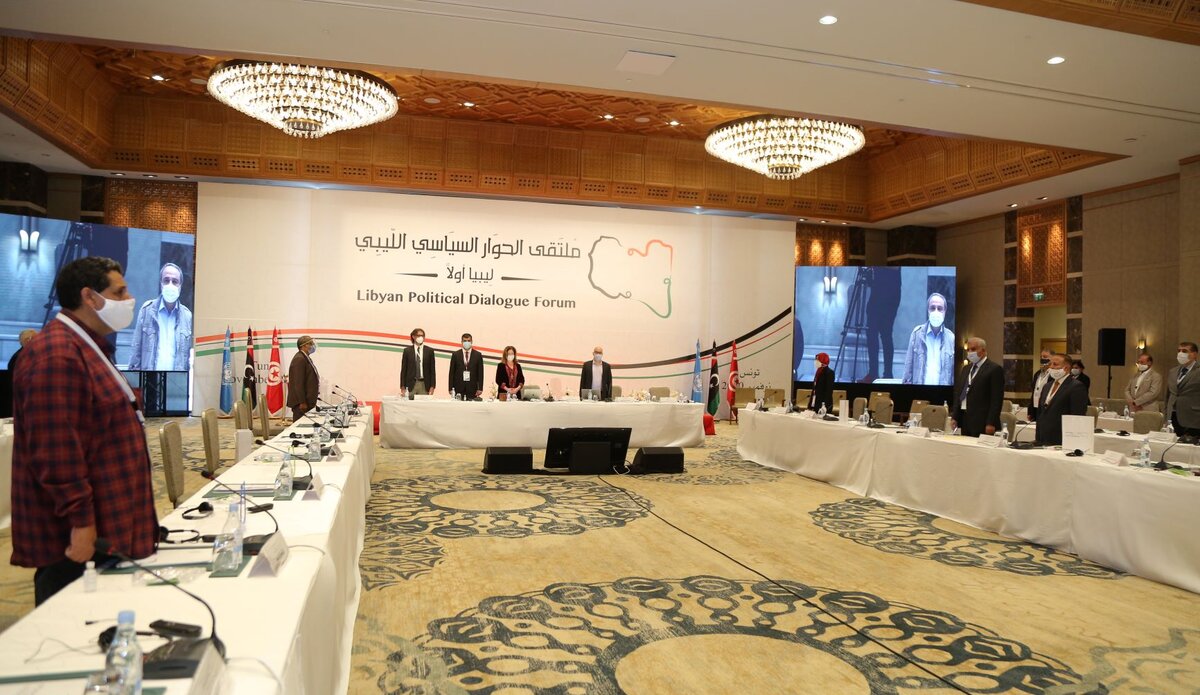
Libyan Cloud News Agency – Tripoli
A number of media organizations, journalists and human rights activists have sent a message to the participants of the Libyan Political Dialogue Forum in Tunisia.
The signatories of the message expressed their hope that the Forum will reach a final, inclusive solution to the Libyan crisis to build a civil, democratic state in which the citizens enjoy social justice and equal rights, free from any violations of human rights.
The signatories also expressed surprise for lack of transparency in choosing representatives of civil society organizations, considering the absence of representatives of independent press organizations is yet another crack in the Forum.
“None of the principles that were discussed in the Forum have given any priority to the importance of civil society and independent press organizations in any political solution to contribute to ending the conflict first, and then to play their role in combating corruption in Libya,” read the message.
The signatories noted that reform of laws that suppress freedom of expression and peaceful demonstrations were neglected in all previous talks on the Libyan crisis.
They underlined that laws passed during the former regime or those issued by the legislative authorities after 2011 are being used to suppress freedom of expression and to intimidate critics and silence those who want to unveil corruption files.
“The legislative authorities, starting from the National Transitional Council and the General National Congress to the House of Representatives, have not paid any attention to the seriousness of these laws which have not been amended or cancelled, despite the fact that calls to amend these laws have started since 2005.” The message explained.
The signatories clarified that many laws are deemed invalid after the issuance of Transitional Justice Law No. 29 of 2013, which stipulated in its fourth article that one of the goals of the law is to abolish unjust laws that violate human rights and establish tyranny in the country.
The signatories stated that civil society and freedom of expression are needed today today more than before, especially in these situations which have weakened the state and its institutions.
They warned that the continuation of these laws will weaken the work of civil society and the press organizations, and make them hostage to weak state institutions and the armed groups.
The signatories issued a set of recommendations including:
- Revoke Articles 166, 171, 174, 176, 177, 196, 203, 204, 206,207, 167, 169, 172, 173, 175, 178, 188, 205, 208, 220, 222, 236, 239, 244, 245, 251, 262, 273, 274, 284, 285, 286, 289, 290, 291, 292, 317, 318, 319, 438, 439 of the Libyan Penal Code, which impose death penalties for crimes related to the freedom of expression, which violates the Constitutional Declaration and the international conventions for the protection of freedom of expression, which the Libyan state has signed.
- Revoke Law No. 5 of 2014 issued by the General National Congress on February 5, 2014, which replaced Article 195 of the Penal Code, which Gaddafi used to imprison most of his opponents.
- Revoke Publications Law 76 of 1972, which imposes freedom-depriving penalties for the peaceful freedom of expression.
- Revoke Law No. 4 of 2017 on amending some provisions of the Military Penal Code and the Military Code of Criminal Procedure, which paved the way for referring peaceful civilians, including journalists, to mock military trials that lack the most basic conditions for justice.
- Revoke Anti-Terrorism Law No. 3 of 2014 which imposes restrictions on freedom of expression, including internet censorship, to bring loose charges related to terrorism, state security, and national security and attach them to violators, and release all individuals detained under this law to exercise their right peacefully.
- Pass a law guaranteeing the right of access to information, and a law that regulates the media in line with international human rights standards, and establishing an independent media body that includes independent members recognized for their expertise, competence and integrity, whose mission is to support the independence of the media and promote freedom of expression, and to combat hate speech and incitement to violence, and violent armed extremism.
- Revoke Law No. 19 of 2001 regarding the reorganization of civil societies, as it violates the principles of human rights, public freedoms and international standards.
- Revoke Resolutions 1-2 of the Civil Society Commission for the year 2016, because they undermine the civil work, and for their inconsistency with the Constitutional Declaration, and Libya’s international and regional obligations.
- Revoke the decision of the Presidential Council of the Government of National Accord No. 286 of 2019 regarding the adoption of the regulations for the work of the Civil Society Commission, and replaces it with the new draft law for NOGs, prepared by Libyan legal experts and representatives of civil society, which protects freedom of expression, in line with the International Covenant Civil and Political Rights and the Constitutional Declaration.
- Revoke Law No. 65 of 2012 regarding the organization of the right to peaceful protests.
- Revoke Paragraphs 7 and 8 of Article 3 of Law No. 7 of 2012 regarding the establishment of the Libyan Intelligence Service.
- Reconsider Resolution No. 555 of 2018 and amending it in accordance with international conventions.
- Conduct impartial and thorough investigations into all cases of violations of freedom of expression and peaceful protests, and bring all violators to justice.
The signatories are:
Libyan Independent Media Organization
Libyan Foundation for Investigative Journalism
Aswat Media Network
Libyan Center for Freedom of the Press
Libyan Legal Aid Organization
Libyan Cloud News Agency
Journalist, Hanan Al-Maqoub
Lawyer, Fatima Hawas
Civil activist, Salem Al-Madani
Journalist, Tawfiq Abu Ajaja
Journalist, Mohammed Zinouba
Activist, Farag Farkash
Journalist, Abdel Monem El-Juhaimi
Civil activist, Ashraf Al-Qatani
Journalist, Ezzadin Al-Huni
Amira Nuri, Libyan Women Union in the south
Journalist, Rima El Filani
National Organization for the Voice of Libyan Youth
Journalist, Ibrahim Belgasem
Journalist, Saleh Adam
Journalist, Mohammad Al-Quraj

